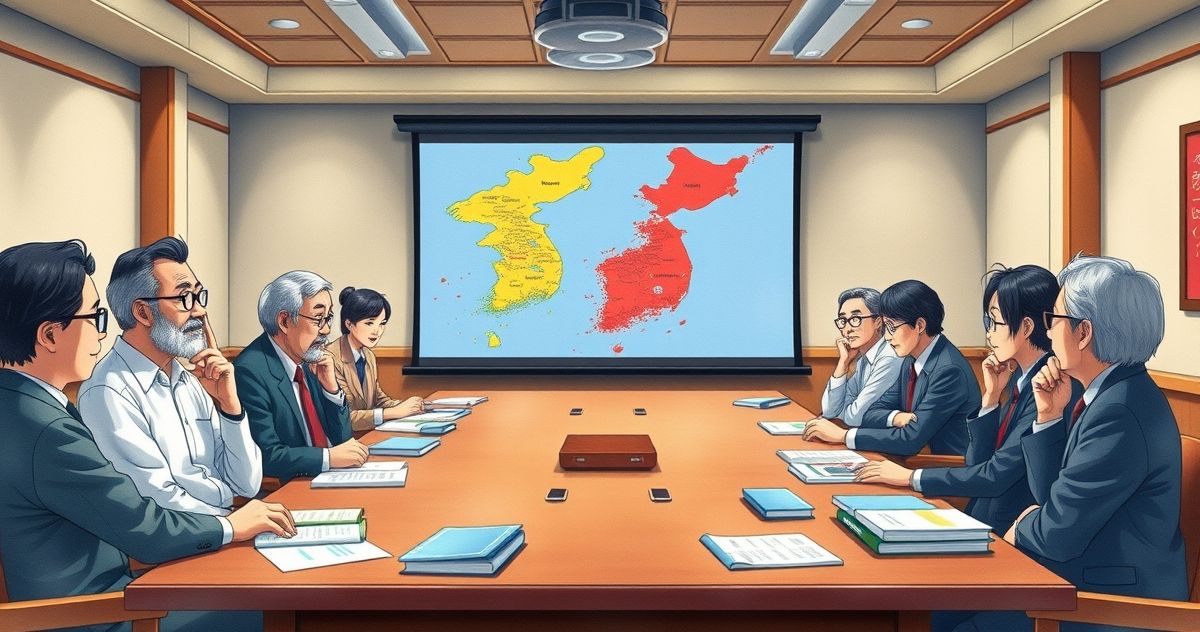
Academic Initiative Addresses New Government's North Korea Policy
Inha University's Institute of Social Sciences has attracted significant attention by hosting a special seminar focused on restoring Korean Peninsula dialogue under the newly inaugurated Lee Jae-myung administration. The seminar intensively discussed the new government's North Korea policy direction and possibilities for resuming the Korean Peninsula peace process.Lee Jae-myung Administration Marks Policy Turning Point
Analysts suggest that the inauguration of the Lee Jae-myung administration has created a new turning point for Korean Peninsula policy. The seminar held by Inha University's Institute of Social Sciences on the 14th provided in-depth discussions on the new government's North Korea policy framework and practical approaches to dialogue resumption. The seminar brought together domestic and international Korean Peninsula experts who explored realistic approaches to the Korean Peninsula peace process from various perspectives. Participants particularly analyzed the achievements and limitations of past inter-Korean dialogue while emphasizing the necessity of new approaches. Experts predicted that the Lee Jae-myung administration's pragmatic approach could yield differentiated results compared to previous rigid North Korea policies.Realistic Approaches to Peninsula Dialogue Restoration
The seminar presented a phased approach to restoring Korean Peninsula dialogue. The proposed strategy begins with building trust through non-political exchanges such as humanitarian aid, gradually expanding to political dialogue. Changes in the international environment emerged as important considerations. Given the Korean Peninsula's geopolitical position within the US-China conflict structure, participants emphasized the need for independent yet realistic North Korea policies. Economic interdependence as a peace-building mechanism received particular attention. This strategy involves creating substantial benefits through inter-Korean economic cooperation while simultaneously securing political stability.Academic Policy Recommendations and Research Outcomes
Through this seminar, Inha University's Institute of Social Sciences sought to develop systematic academic research outcomes into policy recommendations. Researchers conducted in-depth analysis of inter-Korean relations history to identify success and failure factors. The seminar also included reexamination of existing theories. New interpretations of Goryeo Dynasty territorial scope were introduced, providing fresh perspectives on the historical context of Korean unification. Such historical perspectives provide important insights for objectively understanding the current division situation and exploring future-oriented unification approaches.Redefining Roles of Civil Society and Academia
The seminar significantly addressed the roles of civil society and academia in the Korean Peninsula peace process. Participants shared recognition that private-level exchanges and research become increasingly important when official government dialogue remains limited. Opinions were presented advocating expansion of private sector roles across various fields including academic exchange, cultural exchange, and humanitarian aid. Encouraging next-generation researchers' participation in Korean Peninsula studies was also discussed. Inha University's Institute of Social Sciences announced plans to serve as a hub for Korean Peninsula peace research, beginning with this seminar.International Perspectives on Korean Peninsula Policy
The seminar also importantly addressed viewing Korean Peninsula issues from international perspectives. Participants analyzed the impact of major powers' policy changes and regional security environment shifts on inter-Korean relations. Possibilities for establishing multilateral cooperation frameworks in Northeast Asia were particularly discussed. Proposals were presented for connecting the Korean Peninsula peace process with regional-level peace system construction. Experts emphasized that the Lee Jae-myung administration should approach Korean Peninsula issues within international contexts while strengthening Korea's leadership role in policy implementation.Future Research Directions and Policy Development
Based on this seminar's outcomes, Inha University's Institute of Social Sciences plans to conduct continuous research activities. Regular seminar hosting and policy report publications are being planned. The institute particularly aims to secure sustainability in Korean Peninsula research and introduce new perspectives by expanding young researchers' participation. Separate programs for graduate students and emerging researchers are planned for this purpose. Seminar participants agreed on the need to strengthen communication channels between government and academia to ensure academic research contributes practically to policy development.Regional Security Implications
The seminar's discussions highlighted how Korean Peninsula dialogue restoration could influence broader regional security dynamics. Experts noted that successful inter-Korean engagement could serve as a model for other regional conflicts and contribute to Northeast Asian stability. The timing of academic initiatives like this seminar reflects growing recognition that sustained peace requires multi-track diplomacy involving not just government officials but also scholars, civil society organizations, and private citizens.Original: https://trendy.storydot.kr/politics/inha-university-korea-dialogue-restoration-seminar


0 Comments